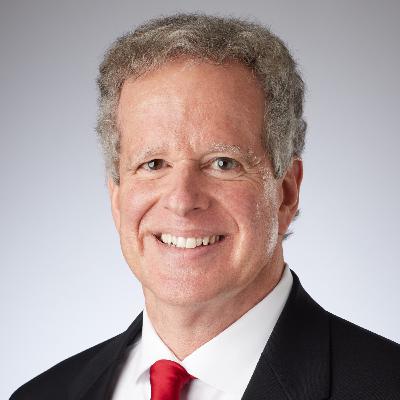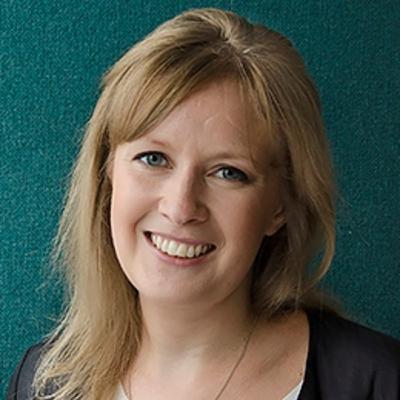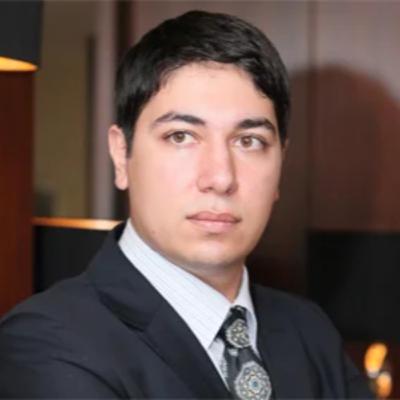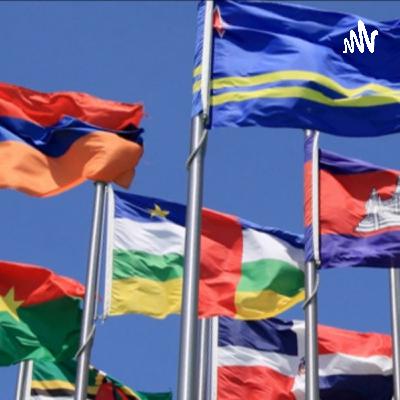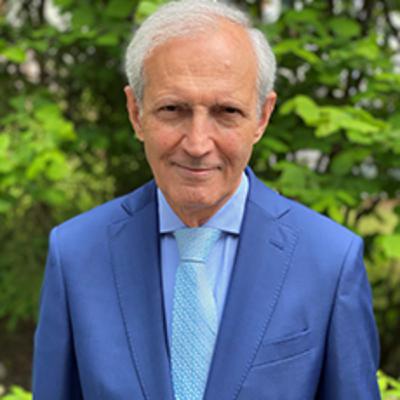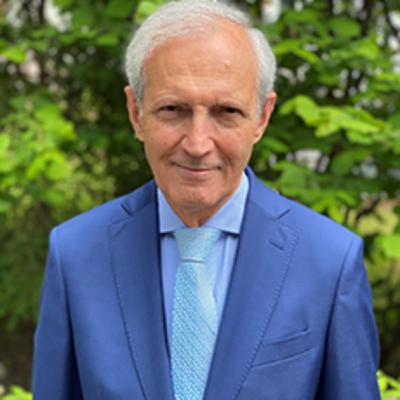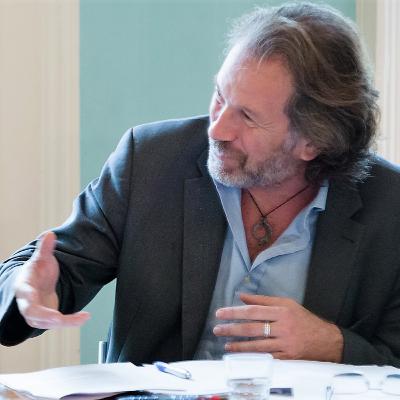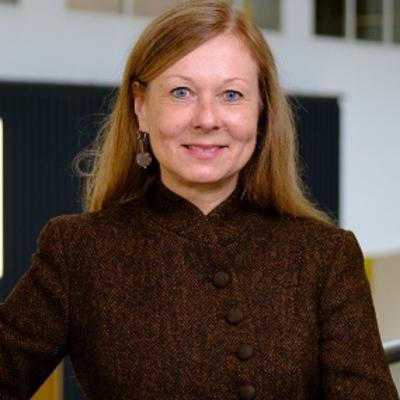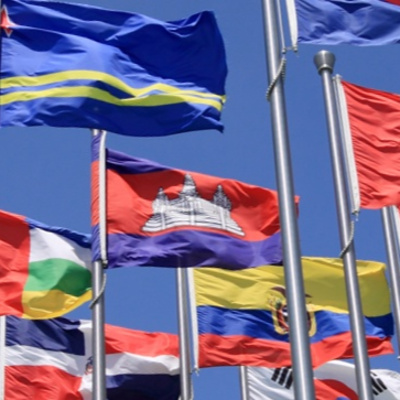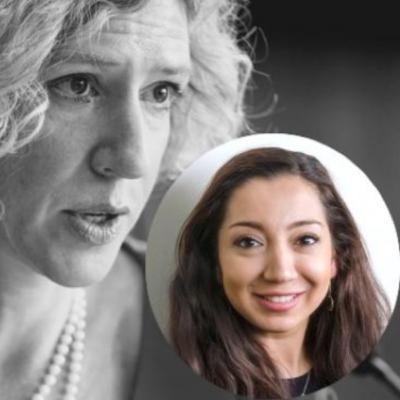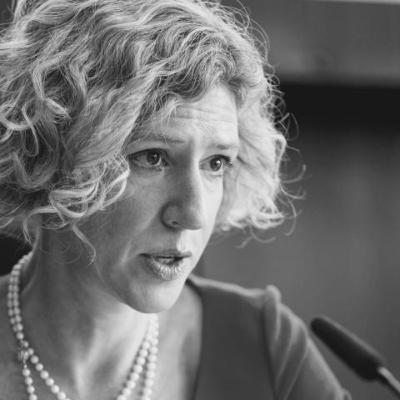Discover SCILJ Seminars
SCILJ Seminars

SCILJ Seminars
Author: SCILJ - Stockholm Centre for International Law and Justice
Subscribed: 3Played: 13Subscribe
Share
© SCILJ - Stockholm Centre for International Law and Justice
Description
A collection of seminars, lectures and workshops hosted by the Stockholm Centre for International Law and Justice
12 Episodes
Reverse
Description:
In different ways, the wars in Ukraine and Gaza have placed great stress on the leading norms and key institutions of international law. Both conflicts have raised profound questions, in the context of current geopolitical realities and the nature of modern warfare, about the meaning and application of such fundamental norms as the prohibition on aggression, the requirements of self-defense, the protection of non-combatants during armed conflict, and the right to self-determination. In both conflicts, there has been a striking
absence of any underlying international consensus on what these widely accepted norms mean in actual practice. The wars also have underlined the severe limits on international institutions such as the United
Nations to prevent, manage or affect in any meaningful way the course of events, especially by comparison with the role played by individual state actors, formal and informal alliances, and other groupings of states driven by domestic and external economic, political, and geostrategic interests. The presentation will close by raising the question of what these two wars may tell us about the current state of international law and its future prospects.
Bio:
Before joining DePaul, Alberto R. Coll served for five years as dean of the Center for Naval Warfare Studies, the U.S. Navy’s foremost strategic research center. A cum laude graduate from Princeton University in history, he earned his JD and PhD in government and foreign affairs from the University of Virginia. Professor Coll is the author of The Wisdom of Statecraft and editor of several other books on international relations and law. He is the author of prize-winning articles in the American Journal of International Law
and the Naval War College Review, as well as articles in Foreign Policy, Washington Quarterly, Harvard Journal of International Law, the University of Pennsylvania Journal of International Law, and the UCLA Journal of International Law and Foreign Affairs. Professor Coll is a member of the Virginia Bar, the Council on Foreign Relations, and the Instituto de Estudios Juridicos y Politicos at the Universidad Complutense de Madrid. At DePaul, he teaches courses on international law, international human rights, U.S. foreign relations, terrorism, international trade and Latin America.
Using the recent cases of Quran burnings in Sweden and the phenomena of Holocaust denial as concrete examples, this panel discussion explores issues of freedom of expression, freedom of speech and freedom of religion.
Speakers:
Frederic Brusi works for the Swedish Agency for Support for Faith Communities (SST).
Raphael Cohen-Almagor is professor of politics at the University of Hull in the UK and the Olof Palme visiting professor, Lund University.
Sally Longworth is a researcher at the Swedish Defence Agency (FOI) and lecturer in public international law at Stockholm University.
The event was moderated by Rouzbeh Parsi, head of the Middle East and North Africa programme at UI.
This seminar was held in collaboration with The Swedish Institute of International Affairs (UI). Be sure to check this and other events published as podcasts in their channel, available here: https://podcasts.apple.com/us/podcast/ui-seminars/id1604798669
Description: The ongoing armed conflict in Ukraine has highlighted a textbook breach of international legal norms that prohibit the use of force and declare respect for the territorial integrity of the states in international relations. The classical nature of the conflict (clear aggressor v. defender that are engaged in prolonged warfare) not seen for some decades, brings up to light a tension between ad bellum and in bello norms that leads to a paradoxical situation where defending state will breach either one set of norms or the other, no matter what it chooses to do. By studying this tension, the article seeks a definition and understanding of this defender’s paradox, as well as the true scope of obligations of the defending side and possibilities to overcome the paradoxical situation in a legal context. This is achieved through a combination of descriptive and doctrinal legal analysis. By examining a case from the war in Ukraine, the study sheds more light on the implications of the paradox for post-conflict justice and contributes to the overall knowledge about the interaction between ad bellum and in bello norms in international armed conflicts.Bio:Dr. Kamal Makili-Aliyev is a Senior Lecturer in Human Rights at the University of Gothenburg and an Affiliated Researcher at the Raoul Wallenberg Institute of Human Rights and Humanitarian Law. His primary research interests are in the fields of international law and international relations, with a specialization in the areas of international security and conflict resolution. He has held previous positions as a Senior Lecturer at Malmö University, a Post-Doctoral Researcher at Lund University, and as Vice-Rector of Lomonosov Moscow State University Baku Branch. Dr. Makili-Aliyev is a Fellow of the National Security Institute in Amherst, MA, USA.
Pål Wrange, SCILJ’s Director and Professor of International Law at Stockholm University, will provide further comments before opening the virtual floor for discussions.
In the inaugural recording of one of SCILJ's weekly BBLs (brown-bag lunchtime meetings), Professor Mark Klamberg (Stockholm University) shares insights on how to develop research questions in international law. This listener-friendly introduction will also be helpful to researchers and students from other legal fields.
Part 3/3 of Said Mahmoudi's lecture featured on the UN's Audiovisual Library of International Law
Part 2/3 of Said Mahmoudi's lecture featured on the UN's Audiovisual Library of International Law
Part 1/3 of Said Mahmoudi's lecture featured on the UN's Audiovisual Library of International Law
Description:
The lecture will suggest a notion of political constitutionalism and defend it against the kind of deformation that is associated with ‘total market thinking’, a thinking which has stormed the constitutional imaginary of the age. The focus will be on the significant shift in European Law effected with the Laval/Viking jurisprudence of the European Court of Justice. What do the decisions signal for political capacity and democratic self-legislation, notions that associate constitutively with the ‘political constitution’? What does ‘proportionality’ mean and effect in this context, and what does ‘market access’ offer when it is conceived as ‘social dumping’ and as ‘race to the bottom’? My argument is that this shift in the constitutional imaginary of our time involves, at a deeper level, a ‘loss of concepts’ that might have furnished a different politics of redress.
Bio:
Professor Emilios Christodoulidis holds the Chair of Jurisprudence at the University of Glasgow. His interests lie mainly in the area of the philosophy and sociology of law and in constitutional theory. He is author of works in constitutional theory, democratic theory, critical legal theory, and transitional justice. His most recent book The Redress of Law: Globalisation, Constitutionalism and Market Capture was published in 2021 (CUP).
Note: The lecture will cover mainly section 3.4 of Emilios’s new book, available via Cambridge eBooks (click here).
Description:
Most literature in international criminal justice/law has considered the victim, prosecutor, courts, or the perpetrators. Yet, the defence lawyer as a key protagonist is largely ignored. The SLSA-funded ‘Defence Counsel “Maestro” project aims to rectify this gap. It will focus on the Polish defence lawyer Stanisław Hejmowski (1900-1969). Hejmowski made a mark at the national war crimes trials of 1946-1948 and later in the high-profile trials of 1956, which involved strikers in Poznań. His success was based on training in a state at a time when five separate legal systems were in force owing to partition rule that lasted over a century in Poland. This project will access Hejmowski’s private, personal archive and case notes to inform a better understanding about the defence lawyer and the strategies that are used in high-profile cases.
Bio:
Dr Agata Fijalkowski is Reader-in-Law at Leeds Beckett University. Her research looks at national war crimes trials post-WW2 and the respective legal teams. Agata’s monograph Law, Visual Culture, and the Show Trial with Routledge is forthcoming in 2023.
Description:
Since the 2021 coup, the battle for control in Myanmar has been mirrored by a fight internationally between the National Unity Government and the junta as to who can represent the state. International lawyers tend to argue that representation depends on who exercises territorial control. And that ‘recognition’ of a government by another state of a government only occurs through a formal, express statement. Actually, things are more complex and variegated. There is no requirement of control, and ‘recognition’ can be forthcoming in more nuanced ways. Moreover, certain sui generis standards sometimes apply. Consequently, the NUG can and should be recognized on the grounds that this is consistent with UN practice, and states members of the UNGA have implicitly recognized it already, with legal significance. One consequence of this is that the Declaration made by the NUG accepting the jurisdiction of the ICC should be accepted by the Court.
Bio:
Dr Ralph Wilde is based at UCL, University of London. He is an expert in international law. His current research focuses on the extraterritorial application of international human rights law, migration and refugee protection in international law, and the international law aspects of the Israel-Palestine situation. His previous work on the concept of trusteeship over people and territorial administration by international organizations includes his book International Territorial Administration: How Trusteeship and the Civilizing Mission Never Went Away (OUP), awarded the Certificate of Merit of the American Society of International Law. He previously served on the Executive bodies of the American and European Societies of International Law, and the International Law Association.
Although none of the countries in the Global North has had armed conflicts on their soil since the Second World War, there are in these countries at present war criminals, witnesses and victims of atrocity crimes. Many of the latter have come as asylum seekers. This presents a particular problem for those suspected and accused of international crimes. Their legal status and treatment are subject to several different legal frameworks, including refugee law and criminal law. To frame it differently, how should we deal with a person who meets all the criteria of being a refugee while at the same time is a suspected war criminal?
The difficulties are compounded by the fact that the relevant legal frameworks apply different standards when classifying somebody as a criminal, for example, a person may under the lower standards of refugee law be excluded from asylum status because there is a reasonable basis to believe they are a criminal, while the same evidence is insufficient to have the person convicted under the higher evidentiary standards applicable in criminal law. This workshop addresses the mismatch between international refugee law and international criminal law.
Elies van Sliedregt is a Professor of Criminal Law & Procedure at the University of Tilburg. She has previously been the Professor of International and Comparative Criminal Law at the University of Leeds and the Dean of the Law Faculty, Vrije Universiteit Amsterdam. On a regular basis, she trains foreign/international judges and prosecutors in international criminal law. She has authored “International Criminal Law and Legal Pluralism: Straddling Cosmopolitan Aims and Distributed Enforcement” (OUP, 2020), “Criminal responsibility in International Law” (OUP, 2012) and “Rogue Traders. Dutch Businessmen, International Crimes and Corporate Complicity” (JICJ, 2010).
Hevi Dawody Nylén is a PhD candidate in International law at Stockholm University. She has previously worked as a decision-maker and expert in exclusion cases at the Swedish Migration Agency. Hevi is currently working on her PhD project which focuses on Article 1F of the 1950 Refugee Convention, known as the ‘exclusion clause’, in relation to acts of terrorism. The project examines, particularly, the issue of how to better understand the interaction between the exclusion provision and terrorism in accordance with international law. The most relevant bodies of law studied within the scope of this project are International Refugee Law, International Human Rights Law, International Criminal Law and International rules of Treaty Interpretation. She has authored “International Crimes and Exclusion from Asylum in a Swedish Context” (ScStL, 2020) and ”Högsta domstolen lämnar vägledning om verkställighetshinder vid utvisning på grund av brott” (JT, 2019–20).
Since the establishment of the ICC in 2002, domestic courts have been more active in prosecuting international crimes. The majority of international crime prosecutions are currently conducted in Europe and regard those who flee from war-stricken countries like Syria, Iraq and Afghanistan. TRIAL International reports that as victims from war-struck Syria and Iraq found refuge in Europe the number of universal jurisdiction (UJ) prosecutions has gone up significantly. The paradigm shift to domestic enforcement of ICL has multiplied disparity and fragmentation of ICL. This increases forum shopping by those who look for the jurisdiction with the broadest UJ provisions. There is no system to regulate the exercise of UJ. Civil Society Organizations focus on Sweden and Germany in bringing cases, because of their broad UJ powers and the fact that they have specialized war crimes units within their law enforcement and prosecution services. Van Sliedregt questions the desirability of the disproportionate burden of one jurisdiction acting as the policeman of the world. In this talk, she will address the complexities of domestic prosecution of international crimes and the question of whether, and if so how, states can install a horizontal, inter-state system of complementarity and burden-sharing.
Elies van Sliedregt is Professor of Criminal Law & Procedure at the University of Tilburg. She has previously been the Professor of International and Comparative Criminal Law at the University of Leeds and the Dean of the Law Faculty, Vrije Universiteit Amsterdam. On a regular basis, she trains foreign/international judges and prosecutors in international criminal law.
She has authored “International Criminal Law and Legal Pluralism: Straddling Cosmopolitan Aims and Distributed Enforcement” (OUP, 2020), “Criminal responsibility in International Law” (OUP, 2012) and “Rogue Traders. Dutch Businessmen, International Crimes and Corporate Complicity” (JICJ, 2010).
Registration (voluntary): scilj@juridicum.su.se, latest the same day
You can follow the lecture online here.


